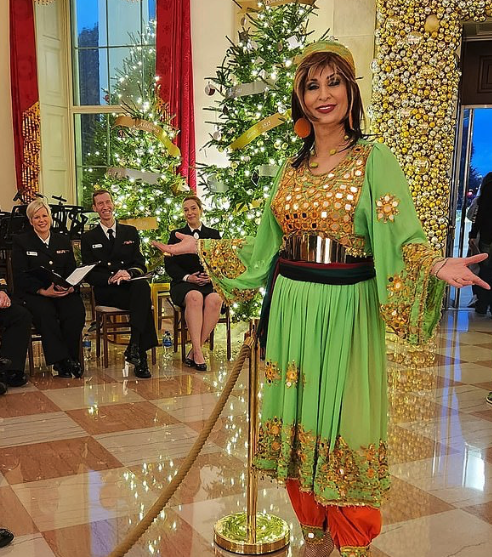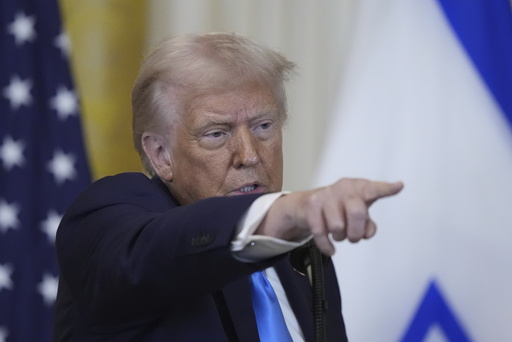President Donald Trump delivered an unexpected moment of levity during a press conference with Israeli Prime Minister Benjamin Netanyahu when he struggled to understand a question from Afghan journalist Nazira Karimi.
Lighthearted Moment Amid Serious Talks
Karimi asked Trump whether he had any “future plans” for the Afghan people, but the president appeared to have difficulty comprehending her accent.
“I have a little hard time understanding you, where are you from?” Trump asked, prompting journalists in the room to respond, “Afghanistan.”
Trump then complimented Karimi’s voice but admitted, “The only problem is, I can’t understand a word you’re saying. But I just say this—good luck, live in peace.” His candid response drew laughter from journalists and attendees in the room.

The exchange added a lighter touch to what was otherwise a high-stakes press conference—Trump’s first with a world leader in his second administration.
Trump’s Gaza Proposal Sparks Controversy
During the same event, Trump outlined his proposal for the U.S. to take control of Gaza and resettle its Palestinian population elsewhere. He suggested turning the war-torn territory into “the Riviera of the Middle East,” a plan that was immediately met with fierce backlash, with critics labeling it “ethnic cleansing in disguise.”
Netanyahu, in turn, praised Trump as “the greatest friend Israel has ever had in the White House,” citing his past decision to move the U.S. embassy to Jerusalem.
Breaking Protocol With Press Engagement
Unlike his predecessor Joe Biden, who followed a structured approach to calling on reporters, Trump opted for a freewheeling Q&A, picking journalists at random. Alongside well-known American reporters, he called on members of the press from Israel, Brazil, Poland, and Afghanistan.
Karimi, a long-standing member of the White House press corps, has frequently asked questions related to Afghanistan. Her presence at the briefing room highlights the evolving media landscape under the new administration, which recently announced plans to include more “new media” voices, such as podcasters and independent content creators.




